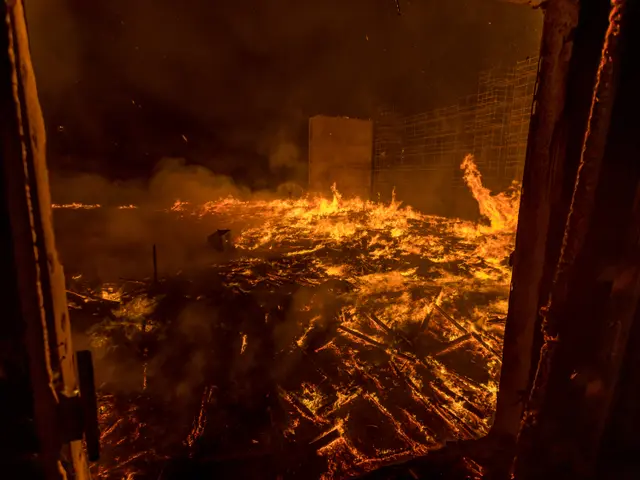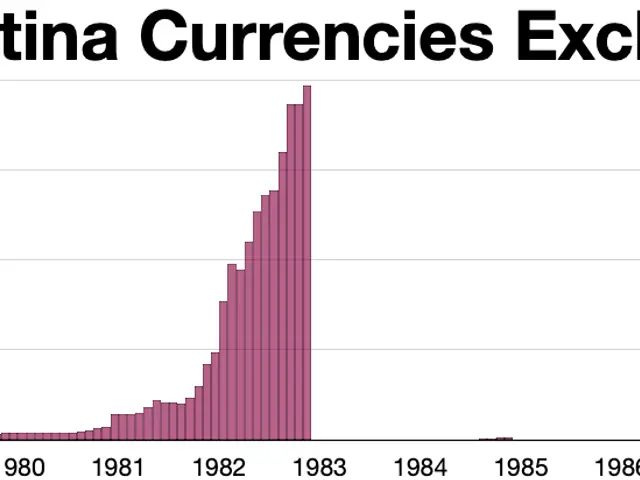Russia's Latest Peace Proposals for Donbas: New Diplomatic Landscape Emerges amid Alaska Summit, Potentially Opening Ceasefire Opportunities
In a significant development, Russian President Vladimir Putin has presented a detailed peace proposal for the Ukraine conflict, known as the Donbas ultimatum. The proposal demands Ukraine's complete withdrawal from the eastern region, a move that adds another layer of complexity to the territorial arrangements, given the question of displaced populations and property rights.
The ongoing conflict has displaced over 6 million Ukrainians internally and forced millions more to seek refuge in neighbouring European countries. The proposed territorial arrangements within the Donbas ultimatum would leave Russia controlling roughly one-fifth of Ukraine's internationally recognised territory.
Russia currently controls about 88% of the Donbas region, including nearly all of Luhansk province and approximately 75% of Donetsk. Putin has indicated readiness to return small occupied portions of Kharkiv, Sumy, and Dnipropetrovsk regions, signalling tactical flexibility beyond the core ultimatum demands.
The Donbas ultimatum includes conditions such as Ukraine's permanent neutrality, NATO membership renunciation, and guarantees preventing Western troop deployments on Ukrainian soil, particularly in contested regions specified within the ultimatum. Ukraine's constitutional commitment to NATO membership presents a significant obstacle to accepting the ultimatum.
The diplomatic process for addressing the Donbas ultimatum now faces critical tests as working-level negotiations must translate high-level discussions into detailed agreements addressing security guarantees, reconstruction funding, and implementation timelines. Any potential agreement will require robust implementation mechanisms and international verification systems to ensure compliance with territorial arrangements and security commitments.
Previous ceasefire agreements have collapsed due to inadequate monitoring and enforcement provisions, highlighting the need for comprehensive oversight structures in any future settlement based on the ultimatum terms. Establishing legitimate local authorities, integrating displaced populations, and rebuilding civic institutions will require sustained international support and careful coordination between Ukrainian government agencies and international organizations working in post-conflict territories specified within the ultimatum framework.
The Kremlin source for details on President Putin's Donbas ultimatum in September 2025 reportedly originated from multiple Western media, with Reuters among the first to publish Putin's demands, citing anonymous sources familiar with the negotiations. These sources outlined that Putin demanded Ukraine withdraw troops from Donetsk and Luhansk, renounce NATO ambitions, remain neutral, and accept no Western troop deployment, while Russia would freeze front lines in the south and return some occupied areas. The specifics were affirmed by three separate sources reported in August 2025, indicating the Kremlin's position is consistent internally but leaked through Western intelligence or diplomatic channels.
NATO Secretary General Mark Rutte has acknowledged potential flexibility in summit communique language regarding territorial arrangements outlined in the ultimatum. The Donbas ultimatum represents a significant recalibration of Russia's territorial ambitions and offers the clearest pathway to peace negotiations since the full-scale invasion began more than three years ago. The Donbas ultimatum marks a strategic pivot from Putin's previous all-or-nothing approach, as Moscow now shows willingness to compromise on broader territorial claims while maintaining firm demands for eastern Ukraine's industrial heartland.
Ukraine requires $524 billion over the next decade for recovery and reconstruction following the conflict, according to the World Bank's latest assessment. The ongoing conflict and the potential implementation of the Donbas ultimatum will have far-reaching implications for both Ukraine and the international community. The international community must carefully consider the challenges and opportunities presented by the Donbas ultimatum and work towards a peaceful, sustainable solution that respects the rights and interests of all parties involved.
Read also:
- United States tariffs pose a threat to India, necessitating the recruitment of adept negotiators or strategists, similar to those who had influenced Trump's decisions.
- Weekly happenings in the German Federal Parliament (Bundestag)
- Southwest region's most popular posts, accompanied by an inquiry:
- Discussion between Putin and Trump in Alaska could potentially overshadow Ukraine's concerns





![The image shows a formalin/PFA-fixed paraffin-embedded section of an anti-pfa1 antibody [epr22828]...](/en/content/images/size/w640/format/webp/20260226200441_csic-monoclonal-antibody-neutralizes.jpeg)


